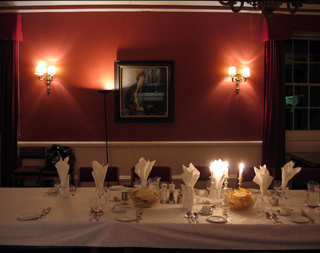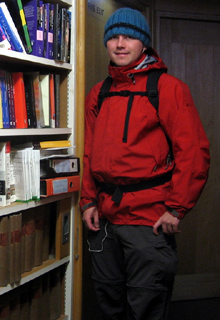
Reading the news that Saddam Hussein, former president of Iraq, has been sentenced to die by hanging created a ambivalent combination of feelings. On the one hand, he is certainly guilty: if not of the particular atrocity for which he was tried than for crimes against humanity in general. Likewise, launching the Iran-Iraq War probably constituted ‘conspiracy to wage aggressive war’ – the crime for which the subjects tried at Nuremberg were hanged.
Problems with the trial
That said, there are procedural issues that draw the result into question. One major legal problem is the genesis of the Supreme Iraqi Criminal Tribunal (formerly known as the Iraqi Special Tribunal). This body, where Saddam Hussein is on trial, was not established by an elected Iraqi government, but by the Coalition Provisional Authority: a bureaucracy composed of and supported by the occupying army. To say that this is domestic Iraqi justice is therefore somewhat disingenuous.
Other serious problems have been the lack of security for those involved in the trial: including witnesses, judges, and lawyers. By the end of the trial, Saddam Hussein only had one legal representative left: Khalil al-Dulaimi (largely because others were dismissed, though three were killed). The absence of a stable security situation in Iraq, and Baghdad in particular, further reduces the changes of a free and fair trial being conducted, at an internationally certifiable level of due process.
A further problem is the absence of an adequate process of appeal. There is only a ten-day window in which an appeal can be launched, and it is widely expected to end in failure within weeks. Related is the issue that it is over-hasty to execute Saddam Hussein on the basis of one set of allegations, relating to 148 killings in Dujail in 1982, when so many more charges remain to be considered. The importance of being systematic and fair lies in generating an accurate accounting of the various crimes committed by Saddam Hussein and his regime. If the stated objective of the coalition in “drawing a line” under the Saddam era is genuine, such a comprehensive accounting seems like an important step.
Problems with the death sentence, generally
In general, the international community has condemned the sentence of death. The European Union has spoken against it. As have India, Ireland, The Netherlands, and New Zealand. Even Tony Blair said that he is opposed.
Personally, I don’t feel that execution is an option that should be available to any court. As a form of justice, it is little more than crude retribution. While the danger of convicting innocent people does not apply in this case, the general moral and pragmatic position against the death penalty seems very strong to me.
That said, imposing what has become the international consensus upon the Iraqi court carries problems of its own. To grant the new Iraqi governments powers and then circumscribe their usage does not conform to the project upon which the coalition has supposedly embarked. While it is clearly legitimate for outside actors to urge a reconsideration of the death sentence, it would probably be illegitimate to force the hand of the court in any significant way.
Primarily because of the flawed trial process, the insufficient appeal system, and the importance of rigorously cataloging the misdeeds of the former regime, Saddam Hussein should not be put to death.
All that said, I encourage someone to argue the opposite.




